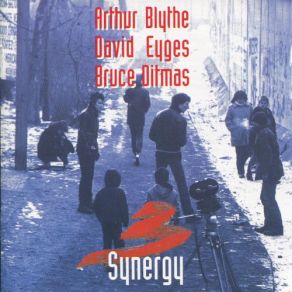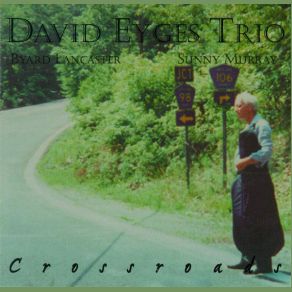David Eyges
Wikimp3 information about the music of David Eyges. On our website we have 1 albums of artist David Eyges. You can find useful information and download songs of this artist. We also know that David Eyges represents Jazz genres.
Biography
[Edit]Never famous though innovative and influential in his field, David Eyges (pronounced Ee-jus) pioneered the use of the cello in modern jazz during the 1970s and '80s (as did his contemporaries Diedre Murray and Abdul Wadud), picking up where Oscar Pettiford, Dick Katz, Doug Watkins, Ron Carter, and Sam Jones left off in the 1950s and '60s while inspiring a worldwide wave of creative cellists that emerged during the 1990s and continued to grow with the new millennium. In an interview conducted in 2005, Eyges named two cellists from Holland as worthy examples of this creative continuum: Tristan Honsinger and Ernst Reijseger. During the first decade of the 21st century, Eyges devoted increasing amounts of time and energy to serving as a producer of other artists' recordings while overseeing his own record label. He has composed more than 100 works, and since 1987 has specialized in the use of the Tucker F. Barrett solid-body electric cello, which he showcased on his solo album Wood (2002). The Eyges discography as leader, collective collaborator, and sideman is uncommonly rich in outstanding improvisers.
David MacAulay Eyges was born in San Francisco, CA, on November 6, 1950. While still in swaddling clothes, he was whisked away to Paris, France, where his father served briefly as science attaché to the United States Embassy. In 1953 the Eyges family settled in Belmont, MA, where the boy began studying piano at the age of five. His lifelong relationship with the cello began with lessons when he was 11. By 1966 he was absorbing the sounds of jazz while enrolled at the Cambridge School. His higher education took place at Boston University in 1968-1969, and he received his B.A. in 1972 from the Manhattan School of Music, where he majored in cello and studied with Benar Heifetz. While living and working in Cambridge, young Eyges frequented Club 47 in Harvard Square, listening to and hanging out with legendary blues heroes like John Lee Hooker, Muddy Waters, and Lightnin' Hopkins. He even tried playing blues guitar with his own hands for a while, then (in his own words) "transformed the syntax and sense of blues to the cello." This elemental influence distinguished his unique artistry from that of most other improvising cellists. Eyges worked for a few years in various concert orchestras and theater ensembles, sometimes earning fees providing background music for commercials.
David Eyges made his first appearances on records in ensembles led by vibraphonist Bobby Paunetto (1974) and drummer Bob Moses (1975). The first album to be released under his own name was The Captain (1977) with alto saxophonist Mark Whitecage and bassist Ronnie Boykins, widely admired for his work with Sun Ra. Over the ensuing years Eyges collaborated on numerous projects with the unique and inexplicably underappreciated vocalist Jeanne Lee; multi-instrumentalist Byard Lancaster; drummers Sunny Murray, Thurman Barker, and Abe Speller; violinist Jonathan Levi; guitarist Martin Aubert; bassist Cecil McBee; pianists Paul Bley and Jaki Byard; and alto saxophonist Arthur Blythe. Eyges married Jennifer Skeete in 1976, and their son Eric Eyges was born in 1984. After the couple divorced in 1991, David Eyges developed a lasting friendship with Mary Durel. In 2002 he started a company known as MidLantic Records and soon became more active as a producer than as a performer, even while continuing to make records with his longtime collaborator Arthur Blythe. Eyges has produced recordings by Israeli guitarist Avi Rothbard, Czech guitarist Rudy Linka, New York electric guitarist Dan Rose, vocalist Lenora Zenzalai Helm, and the Coalition, a highly charged free-form electro-funk unit.


